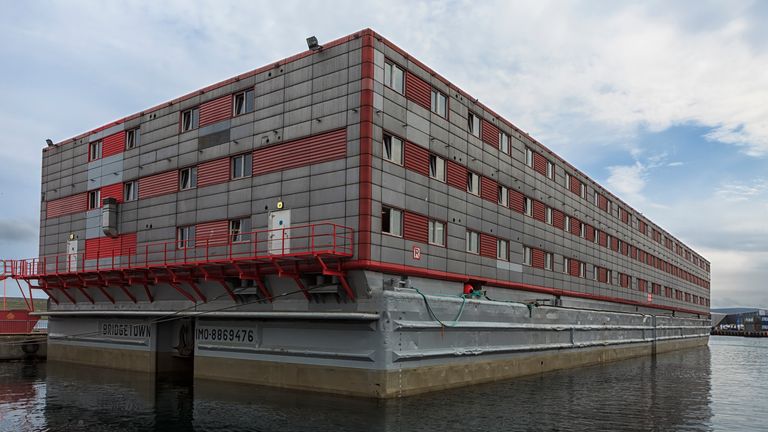It was announced yesterday that the controversial Bibby Stockholm will be shut down in January 2025. The Guardian reports that the barge, which is docked in Portland off the coast of Dorset, currently houses 400 asylum seekers.
The government’s decision to close the Bibby Stockholm is partly influenced by financial issues, with predictions that extending its use would have cost over £20 million next year. In announcing the decision, the Minister for Border Security and Asylum, Dame Angela Eagle MP said: ‘We are determined to restore order to the asylum system, so that it operates swiftly, firmly and fairly.’
The Bibby Stockholm has faced significant criticism from the outset for its inhumane conditions described as akin to detention. As reported in the Guardian, the Fire Brigades Union described it as a ‘potential deathtrap’ due to a lack of fire exits and predicted overcrowding. In August of last year, legionella bacteria was found in the water system on the barge just hours after asylum seekers had boarded, which led to it being evacuated. Then in December of last year, Leonard Farruku, was also found to have taken his own life aboard the barge, which a fellow asylum seeker described as no surprise, due to everyone’s mental health ‘deteriorating.’.
The decision to close the barge has been welcomed by campaigners. Sacha Deshmukh, the Chief Executive of Amnesty International, said it was ‘absolutely correct this inhuman practice’ will come to an end, describing the barge as ‘distressingly reminiscent of the prison hulks of the Victorian era.’ Deshmukh continued: ‘Along with the disastrous Rwanda scheme, the Bibby Stockholm is emblematic of the previous Government’s failure in refusing to process claims and grant asylum where that was merited.’ He further emphasised that: ‘People seeking asylum have the right to be housed in a safe, dignified fashion’ and expressed hope this would be reflected in plans from the new Labour government.
The Refugee Council also ‘welcome’ the decision after hearing about the ‘dire conditions’ on the Bibby Stockholm for too long, which were ‘prison-like, overcrowded, and isolated, making it impossible for people to access the specialist support they desperately need.’ They said this would be a crucial step towards ‘fixing our costly, chaotic, and dysfunctional asylum system.
However, as reported in the Guardian, others have stressed the importance of ongoing legal action against using former RAF bases to house asylum seekers. The Justice Gap has previously reported on the ‘horrific’ conditions at the current Wethersfield camp which is due to be challenged in the High Court.







